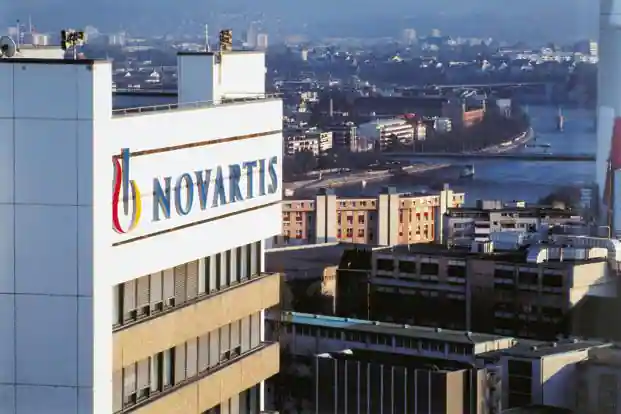A maxi-share buyback program for Novartis starts
Stando alle comunicazioni odierne del colosso farmaceutico renano, il nuovo programma segue praticamente senza soluzione di continuità quello precedente, pure di tre anni, che si è concluso con l’acquisto di un totale di 214 milioni di azioni nominative per circa 17,5 miliardi di franchi, pari a circa l’8,9% del capitale sociale e dei diritti di voto. Dopo l’approvazione degli azionisti questi titoli sono stati distrutti, o lo saranno in futuro.
Subsequent buybacks will be made at the discretion of the board of directors and will take place on a separate trading line on the Swiss exchange. However, the share price will move in line with that of the ordinary exchange line.
The buyback is beneficial
Come noto il riacquisto di azioni proprie (buyback) è vantaggioso per gli azionisti, perché diminuendo il numero di titoli in circolazione si aumenta il valore della singola azione rimanente, incrementando anche un parametro importante come l’utile per azione.
In un’ottica generale, l’operazione – vista in modo positivo – testimonia il fatto che l’azienda dispone di molta liquidità, mentre chi vuole guardare in modo negativo può pensare che la dirigenza non veda opportunità per investire il denaro nello sviluppo dell’impresa. Molto importanti sono anche considerazioni
of a fiscal nature.
Il gigante di Basilea – una realtà che fornisce medicinali a quasi 800 milioni di persone nel mondo e per cui lavorano 106’000 persone – ha chiuso il 2022 con un fatturato di 50,5 miliardi di dollari (la valuta in cui sono tenuti i conti) e un utile netto di 13,4 miliardi.
Related News: Novartis. Financial Results
Swiss. Novartis separates from Sandoz
Editor's note:
Why is the Buyback done?
A company may decide to carry out a Buyback for various reasons, such as:
- support the share price on the Stock Exchange in cases of non-performing shares: a greater demand for the share generated by the purchase of treasury shares corresponds to an increase in the price of the shares;
- send the market a signal of confidence: the Buyback implies an implicit appreciation by the company itself of the worthiness of the investment in the stock;
- to source on the market, under plans stock option, the shares which can then be granted to group managers, upon the achievement of certain economic-financial objectives, following the exercise of the respective option rights;
- to invest excess earnings where there are no better investment opportunities;
- to acquire a reserve of company shares that can be used for acquisitions and/or share swaps with other companies;
- to create (distribute) value to shareholders, who will see the value of their stake increase following the reduction in the number of outstanding shares.
The note does not refer specifically to Novartis, but is a general consideration
Novartis CEO Narasimhan received 8.4 million Swiss francs ($ 8.98 million) in 2022, a decrease of 25% from the 11.2 million Swiss francs ($ 12.18 million) he received (PDF) l’anno precedente. In entrambi i casi, la remunerazione di Narasimhan è stata fortemente ponderata verso obiettivi a lungo termine relativi a vendite, reddito operativo, innovazione e rendimenti per gli azionisti.
Analizzando i numeri, lo stipendio base di Narasimhan rappresentava circa 1,9 milioni di dollari dell’ultimo pacchetto retributivo, ha affermato Novartis nel suo rapporto annuale (PDF). Il CEO ha portato a casa altri 2,8 milioni di dollari in contanti e premi azionari per la performance di Novartis nel solo 2022, che la società ha descritto come “solida”.
Narasimhan ha anche raccolto quasi $ 750.000 in benefit pensionistici e “altri compensi”.
Finally, Narasimhan received approximately $3.5 million for helping Novartis achieve its long-term goals. While that sum is no small feat, it is considerably less than the $ 9 million it scored in the same category for 2021.
For the period between 2020 and 2022, Novartis fell short of its goals for net sales growth and shareholder returns, the company said.
Il crollo del rendimento è stato “pesantemente influenzato” dai problemi dei prezzi delle azioni dello scorso anno, che sono stati anche peggiori se si tiene conto del periodo più ampio dal 2020 al 2022, ha affermato Novartis nella sua relazione annuale. La società ha resistito a un crollo delle vendite alimentato dal COVID-19 nel 2020 e nel 2021 e ha dovuto affrontare problemi di sicurezza attorno al farmaco per gli occhi Beovu.
Source: Fierce Pharma
